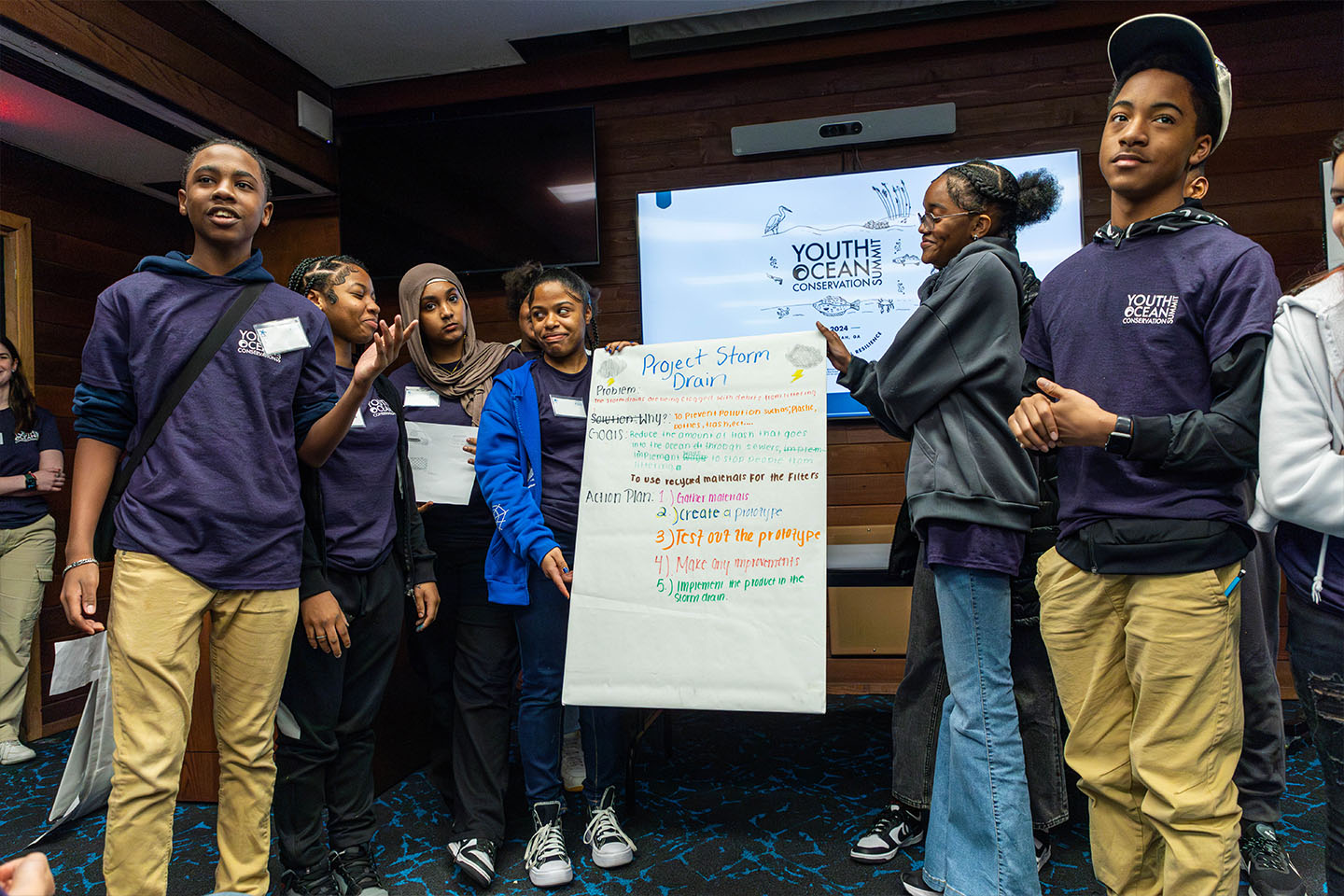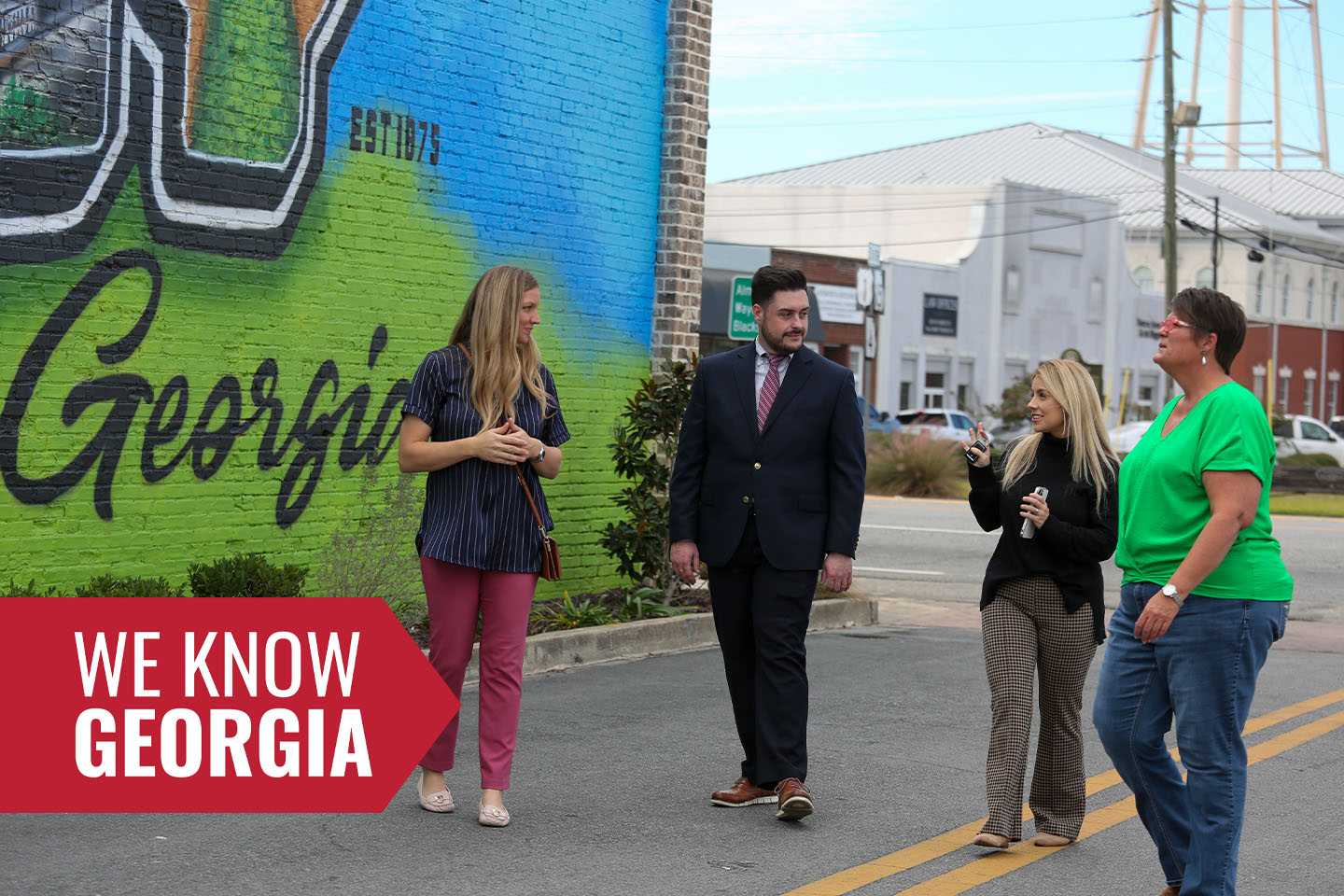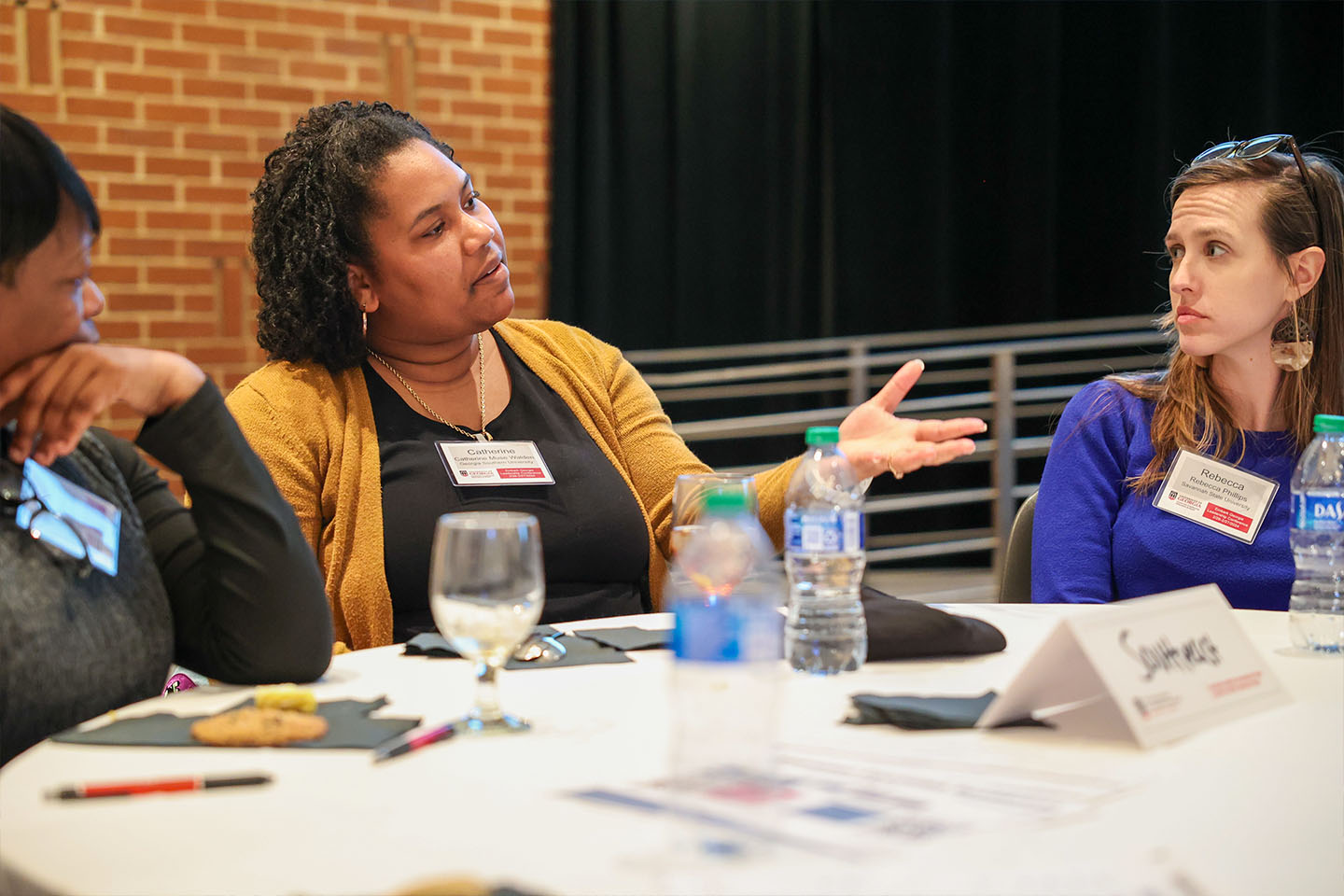Seventy-eight school board representatives from across the state participated in UGA’s first School Board Governance Symposium, held at UGA’s Georgia Center for Continuing Education. Sponsored by UGA’s Office of the Vice President for Public Service and Outreach (OVPPSO), the event was facilitated by David Tanner and Laura Meadows of UGA’s Carl Vinson Institute of Government.
The full-day symposium featured guest speakers and panel discussions about school board administration and management. Wide-ranging topics addressed current challenges in school board governance as well as strategies for addressing them. Vice President for Public Service and Outreach Jennifer Frum introduced the day’s proceedings, outlining the ways in which school board governance across the state relates directly to UGA’s focus on economic development and the ongoing work of UGA’s eight PSO units.
“One of President Morehead’s primary goals as our new President is to increase the university’s role in the state’s economic development,” said Frum. “We all know that education and jobs go hand in hand, and a strong K-16 system is essential for economic growth, innovation and productivity.”
Thomas Gentzel, executive director of the National School Boards Association, delivered his keynote address, “Why Good Board Governance Matters.” Gentzel focused on the importance of accountability, building relationships through effective communication and administrative alignment in school board governance, themes that were reinforced throughout the day.
“Overall, this is about aligning the governance of schools with the management and instructional work,” said Gentzel. “School board governance is not a perfect system, and the process is not about white-washing. Only by taking responsibility and accountability for performance and acknowledging our shortcomings can we address problems in a meaningful way.”
A speech by Michael Thurmond, interim superintendent of the DeKalb County School District, built on the momentum of the day in his remarks during the lunch session. Thurmond’s address highlighted many challenges inherent in school board governance, such as the effective delegation of responsibilities between superintendents, principals and other administrators. Still, Thurmond expressed optimism, emphasizing that despite common misconceptions, his personal experience working with numerous schools has been highly encouraging.
“Despite those who make very harsh speeches about the quality of our education, it is my hope that we all continue to believe that every child deserves the opportunity to get a quality education in Georgia and that every child can learn and succeed in America today,” said Thurmond. “I am a living, breathing testament to the transformative power of public education in Georgia.”
The remainder of the day featured several group activities, roundtable discussions and question-and-answer sessions that helped the school board representatives better articulate their shared concerns and explore options for improving effectiveness. The symposium seemed successful in meeting its primary goal–establishing an environment of solidarity between board members across the state.
The symposium is one of two events planned by OVPPSO to address the relationship between education and economic development in the state. The second is scheduled for spring and will look to communities for success stories of collaboration among city council, county commission and school board members to address education issues.



